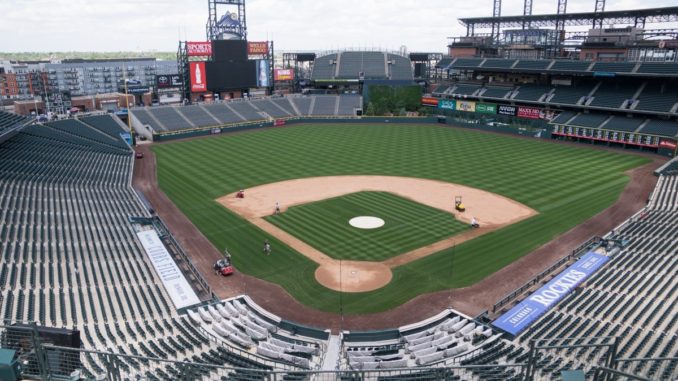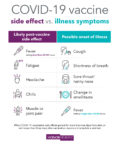
By ANTHONY PICINICH
After a challenging year for sports, the COVID-19 vaccine has provided hope that athletes will never seen a bubble or empty stadiums again. While the belief is the COVID-19 vaccine will loosen up restrictions in sports, like in other aspects of life, there are concerns surrounding the vaccine.
And now, athletes have been on both sides of the COVID-19 vaccination spectrum. Several players, like the entire New York Rangers’ roster, made a public display of getting the vaccination in hopes of inspiring more people to do the same. Others, like Buffalo Bills’ quarterback Josh Allen, said the vaccine is a person and private decision for every player.
Sports have had a complicated relationship with COVID-19 since the virus shut down sports internationally in March 2020. Since then, people have been questioning where athletics fit into a COVID-19 world and the introduction of the vaccine is another challenge.
Lifting Covid Restrictions
Professional sports leagues have been loosening COVID-19 restrictions as the vaccine gets widely distributed amongst players. Major League Baseball has told players they will loosen restrictions for players if 85% of a player’s household is vaccinated. The National Hockey League has told players that restrictions will loosen as entire rosters become vaccinated.
Vegas Golden Knights’ goaltender Robin Lehner voiced his displeasure with the NHL in a pre-game press conference on April 21. “We are vaccinated and we are still trapped in a prison,” said Lehner.
Robin Lehner and his opinion on the COVID vaccination/restrictions in the NHL. Thoughts?pic.twitter.com/LIx8zfDdWH
— Everything Hockey (@EHClothing) April 21, 2021
Lehner also says that the league is worried more about competitive edge than the players’ well being. Whether or not Lehner’s comments are believed around the league is currently unknown but these feelings could cause a rift between the players and league.
NHL deputy commissioner Bill Daly has since told ESPN that the claims made by the Golden Knights’ goaltender were completely false.
The number of specific number of athletes that have received the vaccine is unknown but is believed to be growing. While numbers vary between leagues, National Basketball Association commissioner Adam Silver believes that more than 70% of players have been vaccinated.
Safety Concerns
Every vaccine has side effects and the several COVID-19 vaccine comes with the potential for side effects. The COVID-19 vaccine has the ability to carry side effects like muscle soreness or headaches. The prominence of these side effects is leaving athletes with an interesting decision of getting the vaccine.
The vaccine has had some effect on athletes early in the MLB season. New York Yankees’ third basement Gio Urshela was held out of a game earlier in the season due to side effects of the vaccine. These side effects may also kick in mid-game like in the case of Toronto Blue Jays’ left fielder Lourdes Gurriel Jr. who was pulled after the first inning of a game on April 9.

These side effects aren’t keeping players from getting the vaccine but many are staying careful. Susquehanna University pitcher Kyle Sears, 21, has received his first does of the Pfizer vaccine and the possibility of side effects went into his decision on when to get the vaccine.
“I purposely made sure that it was the day after I pitched so that I would have the whole week to hopefully recover if I got any of the symptoms that came from the first dose,” said Sears.
Schedule assurance also contributes to the decision to get vaccinated. “Our head coach was encouraging us to get it so that there was a less likely chance of anyone getting COVID which means games would not be cancelled because of a positive test like in the past,” said Sears.
Sears does note that some players on the roster were, originally, questioning the decision to get the vaccine because of safety concerns but players started to get it after team discussions.
Having Fans
Sporting events are no longer being held in empty stadiums and arenas. Fans started returning to sporting events at the beginning of the 2020 NFL season in September.
Since then, arenas and stadiums across the United States have opened up their doors and had a socially distanced crowd in limited numbers. Capacities across sports are on the rise as the vaccine becomes more available. Globe Life Field, the home of the Texas Rangers, in Arlington, TX sported a full capacity crowd of almost 40,000 at their home opener on April 5.
BREAKING: The Rangers will allow 100 percent occupancy – masks required – at Globe Life Field for opening day the team announces. More to come.
— Evan Grant (@Evan_P_Grant) March 10, 2021
Sold out crowd for @Rangers Opening Day in Arlington, Texas.
This is the first 100% capacity event in a major stadium since the coronavirus pandemic began. pic.twitter.com/gRjHH107fj
— KUSI News (@KUSINews) April 5, 2021
It’s the Texas Rangers home opener — the stadium in Arlington is the only one that is opened to full capacity in all of baseball.
Rangers officials said fans are required to wear masks inside the stadium ?
(AP/Jeffrey McWhorter) pic.twitter.com/9gpMJ6sMX2
— The Recount (@therecount) April 5, 2021
Other ballparks are starting to follow that trend as the Atlanta Braves announced on April 28 that Truist Park will be expanding to 100 percent capacity starting on May 7.
Tyler Dies, 22, was fully vaccinated in late March and believes stadium capacities should rise as vaccination numbers do. “I believe full crowds are close in a lot of places because of the vaccination numbers,” said Dies, “The vaccine makes me feel safe and I can’t wait to see a full crowd at Yankee Stadium.”
The lifting of capacity restrictions are transferring to other sports as well. The Florida Panthers announced that their capacity for the first round of the Stanley Cup Playoffs will be 47 percent. The team has also said that that capacity could get up to 100 percent if the team advances past the first round.
States, like New York, are currently requiring a negative test at the door but have since said that proof of vaccination is enough to be allowed entry into the stadium or arena. The Buffalo Bills plan to have a full stadium of vaccinated fans when the season begins in September.
The goal for many baseball teams is to have full capacity crowds by the end of the 2021 regular season. As vaccinations rise, this goal is starting to become more obtainable.
Leave a Reply
You must be logged in to post a comment.